Disclosure: This article contains affiliate links. We may earn a commission from purchases at no extra cost to you, which helps our travel content.
¡Hola viajeros! Ever found yourself staring at a map of West Africa, finger hovering over Guinea-Bissau, wondering if you should take the plunge? Let me tell you - do it. After three years of hopping between European soccer stadiums, I craved something completely different. Gabu, Guinea-Bissau's second-largest city, delivered that raw, authentic travel experience I was searching for. Finding accommodation here isn't as simple as booking.com and done, but that's exactly what makes it special. From family-run guesthouses where you'll feel like an honorary relative to eco-lodges that blend seamlessly into the surrounding landscape - let me walk you through where to rest your head in this off-the-beaten-path destination.
Navigating Gabu's Accommodation Scene
First things first: reset your expectations. Gabu isn't Madrid or Lisbon with their endless hotel options. What you'll find instead are authentic stays that offer something infinitely more valuable - genuine connection.
Most accommodations here aren't listed online, which means you'll need to embrace a bit of adventure (and yes, some pre-planning). I arrived with a handwritten list of recommendations from a Bissau-Guinean flight attendant I'd befriended on a layover in Lisbon.
While the internet situation is improving, it's still spotty at best. Before arriving, I downloaded the offline maps app and marked potential accommodations. This was a lifesaver when navigating Gabu's winding streets with no data connection.
Most guesthouses operate on cash-only basis, so come prepared with CFA francs. ATMs exist but are unreliable, especially during power outages. I keep my emergency cash secure in a hidden money belt that's comfortable enough to wear in the West African heat.
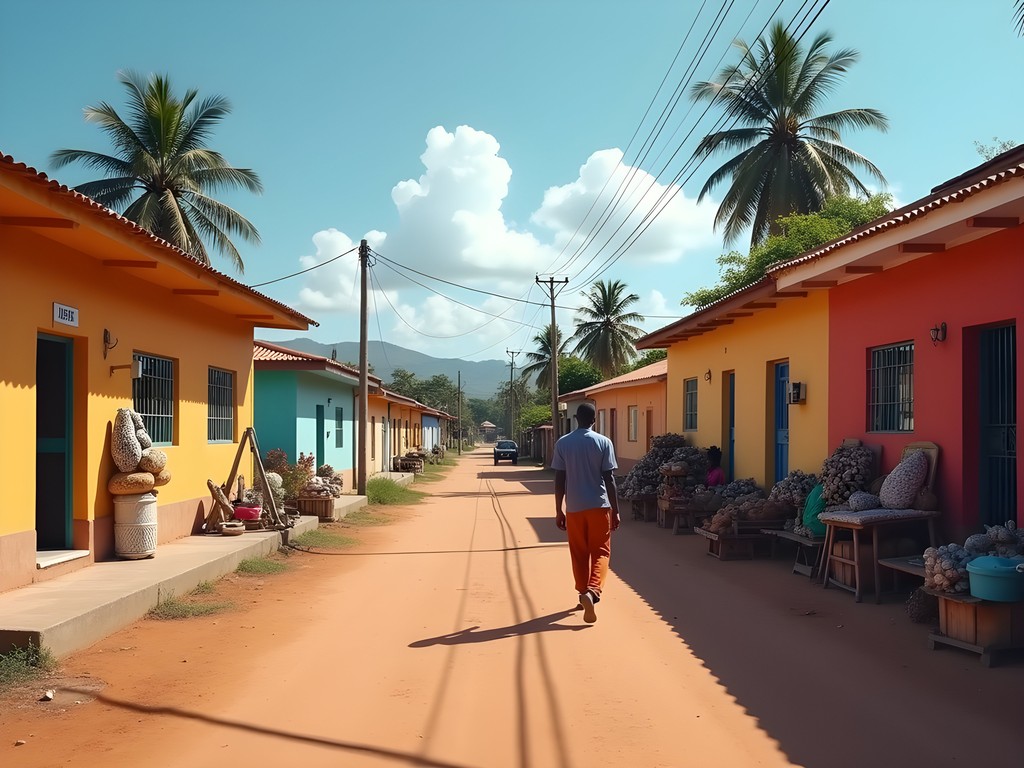
💡 Pro Tips
- Download offline maps before arrival and mark potential accommodations
- Bring enough CFA francs for your entire stay as ATMs are unreliable
- Learn basic Portuguese phrases as English is not widely spoken
Family-Run Guesthouses: The Heart of Gabu Hospitality
My favorite stay in Gabu was with Dona Fatima, whose modest guesthouse sits just three blocks from the central market. For about 15,000 CFA (roughly $25) per night, I got a simple but clean room with a fan and a breakfast that still makes my mouth water - fresh mangoes, homemade bread, and the most incredible coffee I've had outside of Colombia.
What these guesthouses lack in amenities, they make up for in warmth. On my second night, Fatima's entire extended family invited me to join their dinner, and despite my broken Portuguese mixing with their Creole, we communicated through food, music, and laughter.
Another gem is Paulo's Place near the eastern edge of town. Paulo, a former tour guide, has converted his family compound into four guest rooms surrounding a courtyard where he grows the vegetables that end up in your dinner. The shared bathroom facilities are basic but kept immaculately clean.
If you're traveling during the hotter months (March-May), I highly recommend bringing a portable fan as electricity can be intermittent, and nights get sweltering. Also pack a sleep sheet for peace of mind if you're particular about bedding.
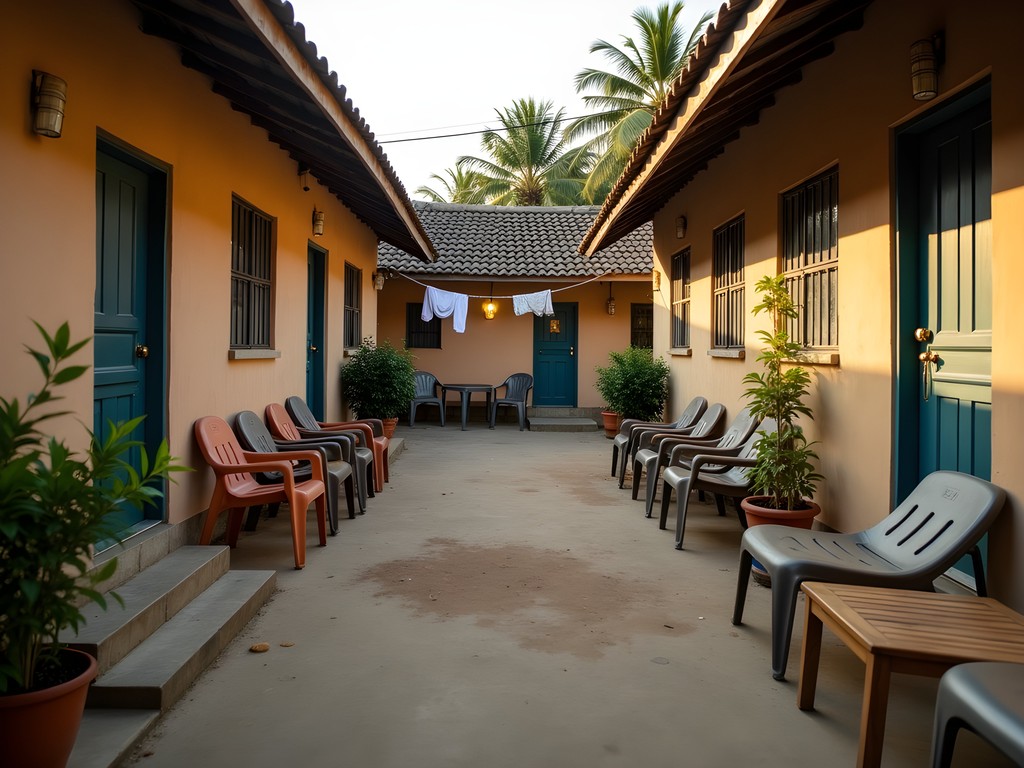
💡 Pro Tips
- Ask locals for guesthouse recommendations - taxi drivers often know the best spots
- Bring small gifts from your home country for hosts - they're appreciated but not expected
- Be prepared to share meals with your host family - it's part of the experience
Eco-Lodges: Sustainable Stays Outside the City
If you're willing to venture 15-20 minutes outside Gabu's center, a small but growing number of eco-lodges offer a different experience entirely. My favorite was Quinta Ecológica, run by a Guinea-Bissau/Portuguese couple who left careers in Europe to create a sustainable tourism model here.
Their four bungalows are built from local materials with minimal environmental impact. Solar panels provide electricity, rainwater is collected and filtered, and waste is composted or recycled. At around 30,000 CFA ($50) per night, it's pricier than in-town options but includes meals made from their organic garden.
The magic happens at dusk when you can sit on your private porch, listening to a symphony of insects and distant village sounds while watching fireflies dance across the fields. No Instagram filter can capture that moment - it's just between you and Guinea-Bissau.
For those venturing further into rural areas, I recommend packing a water purifier to reduce plastic waste and ensure safe drinking water. Also essential is a good insect repellent - the eco-friendly ones work well enough in town but you'll want something stronger for rural areas, especially during rainy season.
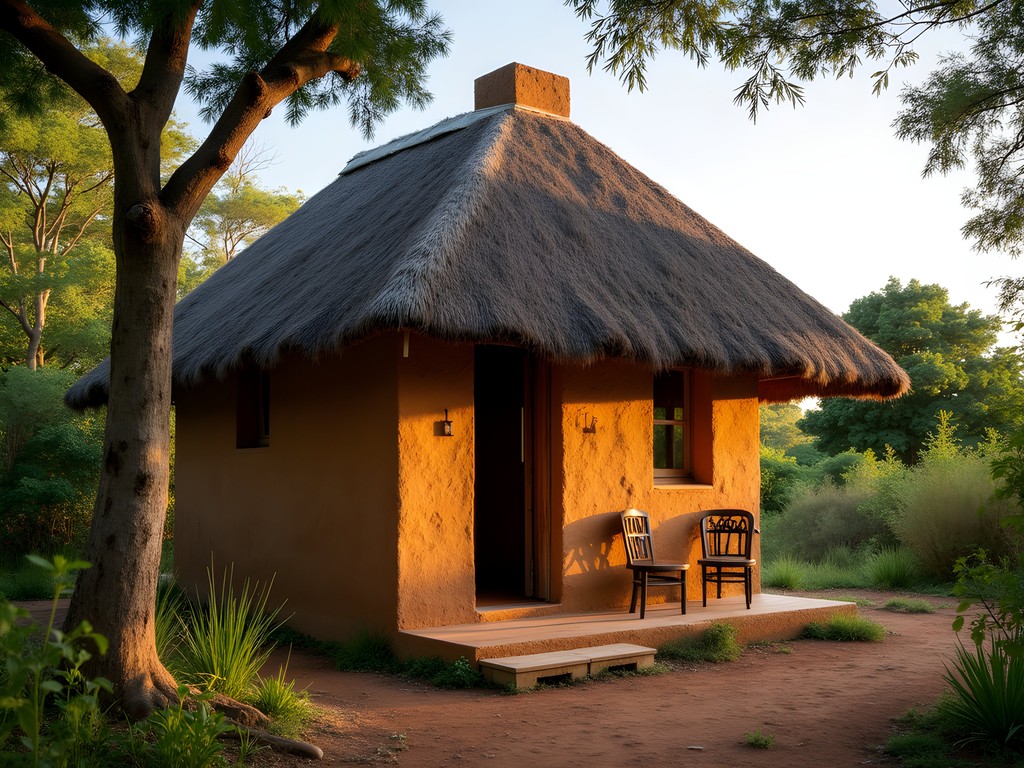
💡 Pro Tips
- Arrange transportation to eco-lodges in advance as they're harder to reach
- Bring a headlamp or flashlight as pathways are often unlit at night
- Pack layers - evenings can get surprisingly cool outside the city
Budget Options for the Solo Traveler
Solo travelers on a tight budget (I've been there!) have limited but workable options in Gabu. The most affordable is Residencial Central near the bus station, where a basic room with shared facilities runs about 10,000 CFA ($17) per night. It's clean enough, secure, and puts you in the perfect location for onward travel.
Another budget-friendly option is Pensão Amizade, where the rooms are simple but the rooftop terrace becomes a gathering spot for travelers sharing tips and sometimes forming impromptu exploration groups. As a solo female traveler, I found this social aspect invaluable.
Both places offer rooms with or without fans (choose WITH, trust me), and neither has reliable WiFi. I stay connected with my portable hotspot which lets me purchase data packages for Guinea-Bissau without switching SIM cards.
For solo travelers, especially women, I also recommend bringing a door stop alarm for peace of mind. While I've never had safety issues in Gabu, it's a simple precaution that helps me sleep better in unfamiliar surroundings.
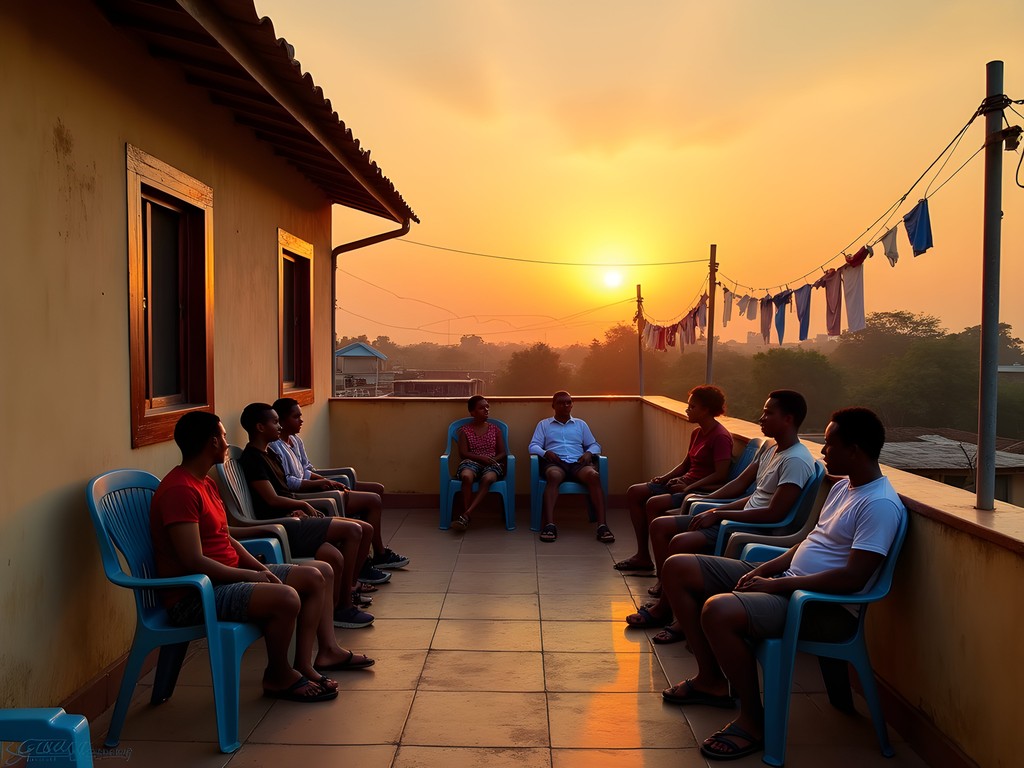
💡 Pro Tips
- Book the first night only, then explore other options once you're in town
- Shared bathrooms are the norm in budget accommodations - bring shower shoes
- Ask about mosquito nets - most places provide them, but quality varies
Connecting with Local Communities Through Homestays
My most meaningful accommodation experience in Guinea-Bissau wasn't technically an accommodation at all. Through a contact at a local NGO, I arranged a three-night homestay in a village 10km outside Gabu. This immersive experience cost around 8,000 CFA ($13) per night including meals, with money going directly to the host family.
I slept on a mat under a mosquito net in a room that was part of the family compound, ate meals prepared over an open fire, and spent evenings learning to play traditional games with the children. Despite having zero common language with my host mother, we developed a communication system of gestures, drawings, and lots of laughter.
These arrangements aren't easy to set up independently, but organizations like the Guinea-Bissau Tourism Association can help connect travelers with participating families. It's not for everyone - facilities are basic (think outdoor latrine and bucket showers), but the cultural exchange is priceless.
For homestays, a solar lantern is essential as many villages have limited or no electricity. I also recommend bringing a quick-dry towel that can dry between those bucket showers even in humid conditions.
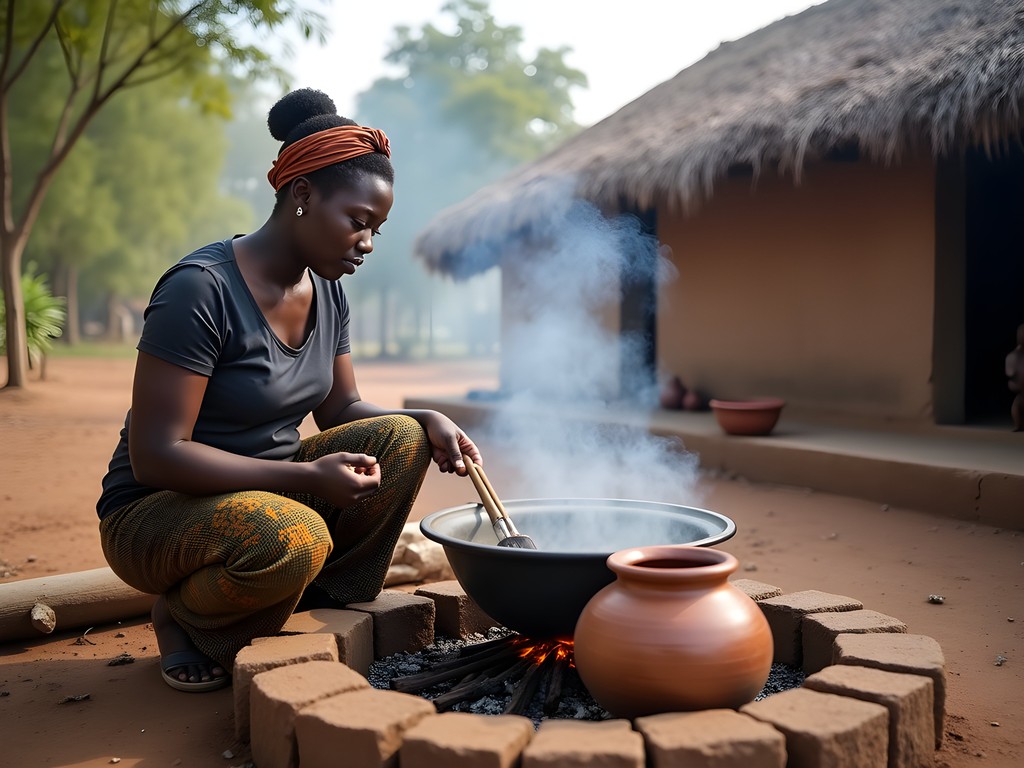
💡 Pro Tips
- Learn basic greetings in the local language before a homestay - effort is deeply appreciated
- Bring photos from home to share with your host family - it creates connection
- Offer to help with daily chores - it's the best way to integrate and learn
Final Thoughts
Finding accommodation in Gabu isn't about luxury amenities or Instagram-perfect interiors - it's about the stories you'll collect, the connections you'll make, and the perspective you'll gain. Whether you choose a family guesthouse in the heart of town, an eco-lodge surrounded by nature, or a homestay that challenges your comfort zone, the key is approaching each experience with an open heart and flexible expectations.
My week in Gabu fundamentally shifted how I view hospitality. In places where people have materially less, I've often found they give emotionally more. The genuine warmth I encountered in these simple accommodations outshined many five-star experiences I've had across Europe.
So pack light, bring cash, download those offline maps, and prepare for accommodation that might not always be comfortable but will certainly be memorable. And isn't that what travel is truly about? ¡Hasta la próxima aventura! If you've stayed in Gabu or are planning a trip to Guinea-Bissau, drop a comment below - I'd love to hear about your experiences or answer any questions!
✨ Key Takeaways
- Most accommodations in Gabu aren't online - prepare for on-the-ground booking
- Family guesthouses offer the best cultural immersion and value
- Eco-lodges provide sustainable options just outside the city
- Homestays deliver the deepest cultural connection for adventurous travelers
- Cash is essential as credit cards are rarely accepted
📋 Practical Information
Best Time to Visit
November to February (dry season)
Budget Estimate
$15-50 per night for accommodation
Recommended Duration
4-7 days
Difficulty Level
Challenging

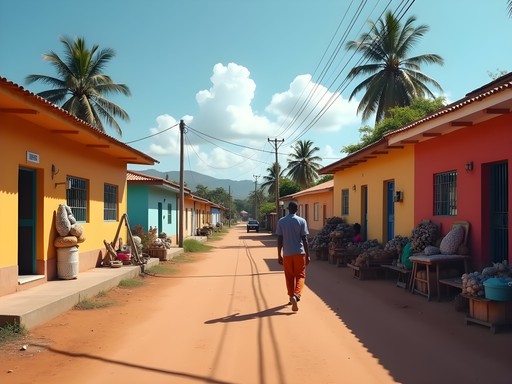
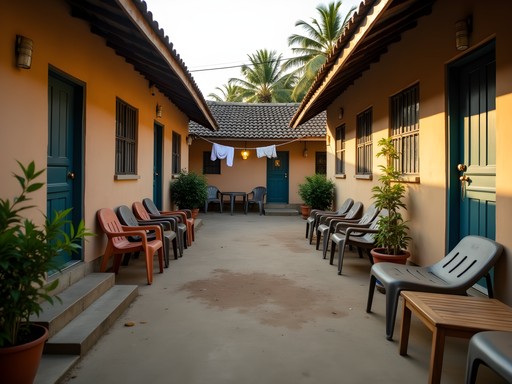
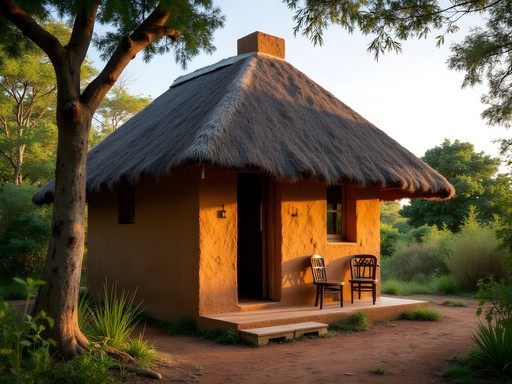
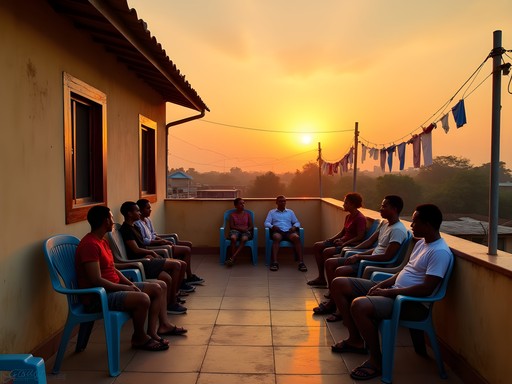
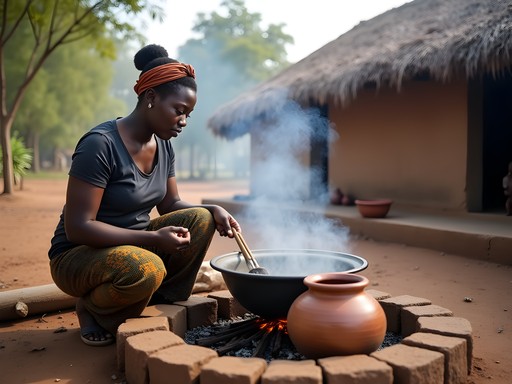


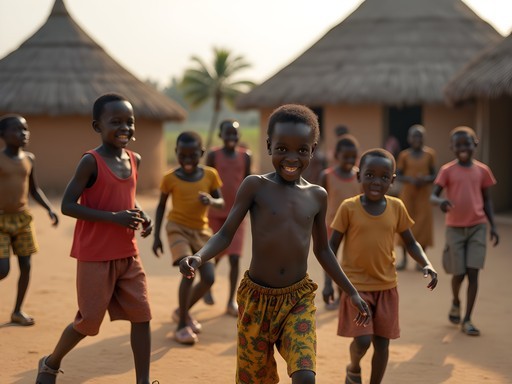
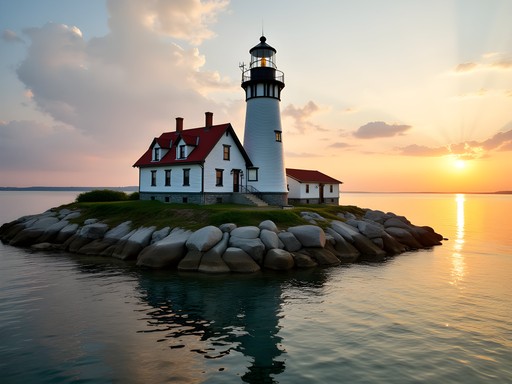
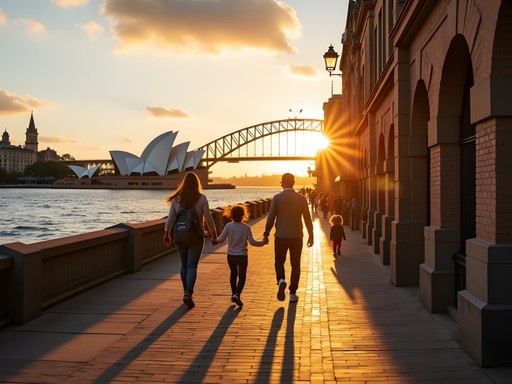
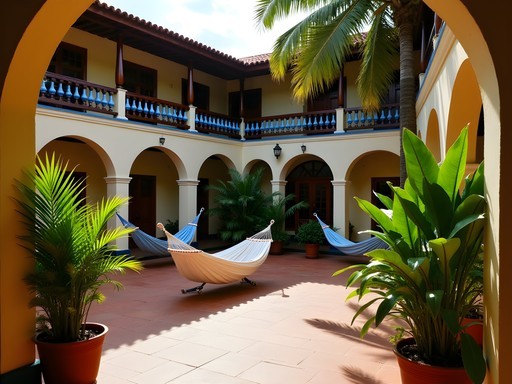
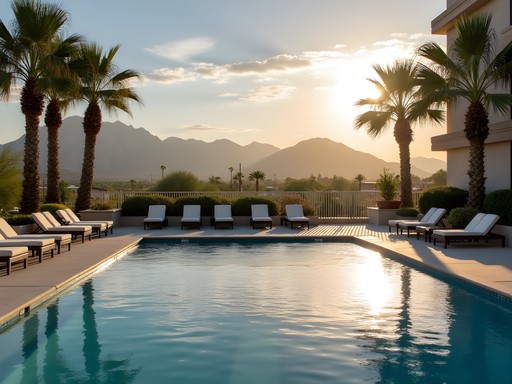
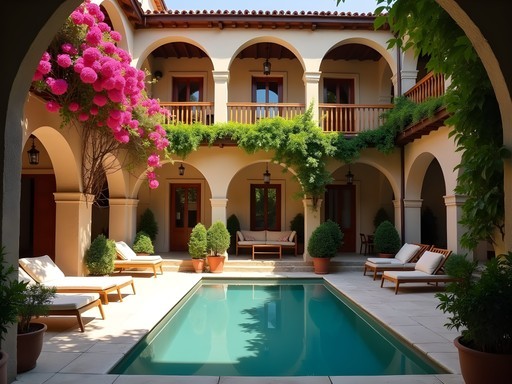
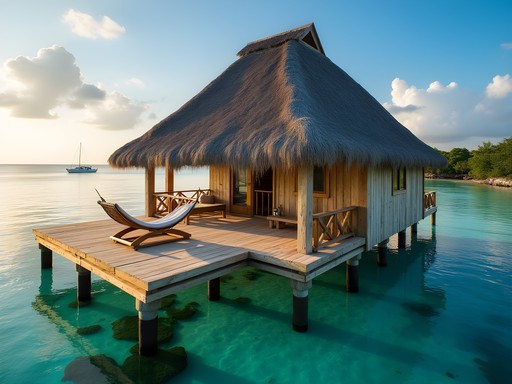
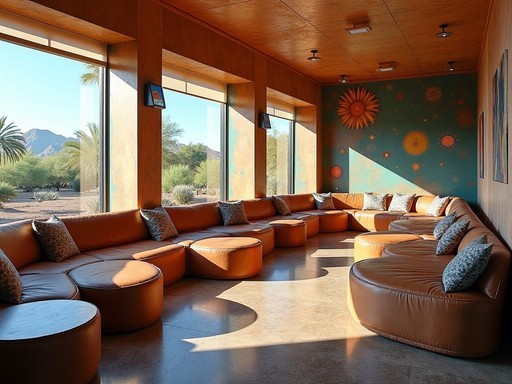
Comments
Scarlett Bryant
Excellent guide, Gabriella! Guinea-Bissau remains one of West Africa's most underrated destinations. I visited Gabu during a regional research trip and was impressed by the authenticity of the accommodation options. For business travelers or those needing reliable wifi, I'd recommend confirming connectivity in advance - it can be spotty. The eco-lodge concept is particularly promising for sustainable tourism development in the region.
travelchamp
This looks amazing but is it safe for someone traveling alone? I'm planning West Africa for next year and trying to figure out my route. Also how's the Portuguese if you don't speak it? I only know basic French.
Gabriella Tanaka
I've solo traveled through Guinea-Bissau twice and felt very safe in Gabu. Portuguese helps but French works too since it's surrounded by francophone countries. The guesthouse owners are incredibly protective of solo travelers - they'll look out for you like family. Just use common sense like anywhere else.
travelchamp
Thank you! That's really reassuring
skymate
I stayed in Gabu back in 2024 and honestly this post brought back so many memories. The family guesthouse I found was exactly like what you described - no frills but the warmth from the owners made it unforgettable. One thing I'd add is bring cash (euros work better than dollars) because ATMs are super unreliable. Also the shared taxis between towns are an adventure in themselves lol. Did you make it to any of the villages outside Gabu?
Gabriella Jenkins
Yes! The cash situation is so important - great tip. I visited a few villages and they were incredible. Planning a follow-up post on day trips from Gabu!
wildphotographer
Guinea-Bissau is on my list now! Thanks for this
vacationnomad
Love your photos! So vibrant
Jean Wells
Excellent write-up, Gabriella. I visited Guinea-Bissau in 2023 (though stayed in Bissau, not Gabu) and your observations about the hospitality culture are spot-on. One thing I'd add for readers: transportation between cities can be unpredictable, so build buffer days into your itinerary. The sept-places (shared taxis) run on their own schedule. Also, I found my portable water filter invaluable in smaller towns where bottled water wasn't always available. The country is absolutely worth the extra planning required.
springhero
Good tip about the buffer days, thanks!
escapeexplorer
THIS IS IT! This is exactly what I've been looking for - real, authentic travel experiences away from tourist crowds. Guinea-Bissau has been on my radar for ages and your post just convinced me. Booking flights tonight!! The eco-lodge section was super helpful. Can't wait to experience this!
wanderexplorer
How's the internet situation at these guesthouses? Need to stay connected for work occasionally.
Gabriella Jenkins
WiFi is pretty spotty honestly. Some guesthouses have it but it's slow. I'd recommend getting a local SIM card - Orange has decent coverage in Gabu town. Don't expect to stream anything though!
skyguide
Never even heard of Gabu before! Is it safe for travelers? Looks really remote.
sunsetguy
I felt totally safe when I was there in 2024. Just use common sense like anywhere.
Nicole Russell
YES! I've been wanting to explore more of West Africa beyond the usual spots and this is so inspiring! The family-run guesthouses sound incredible - that's exactly the kind of authentic experience I'm looking for. Quick question: how's the food scene in Gabu? And is Portuguese essential or can you get by with French/English? Adding this to my 2026 list for sure! 🙌
Gabriella Jenkins
Nicole! The food is SO good - lots of fresh fish, rice dishes, and cashew-based sauces. Portuguese is definitely the main language but I met people who spoke basic French. English is pretty rare outside the guesthouses. The guesthouse owners are super patient though!
Venture X
Premium card with 2X miles, $300 travel credit, Priority Pass